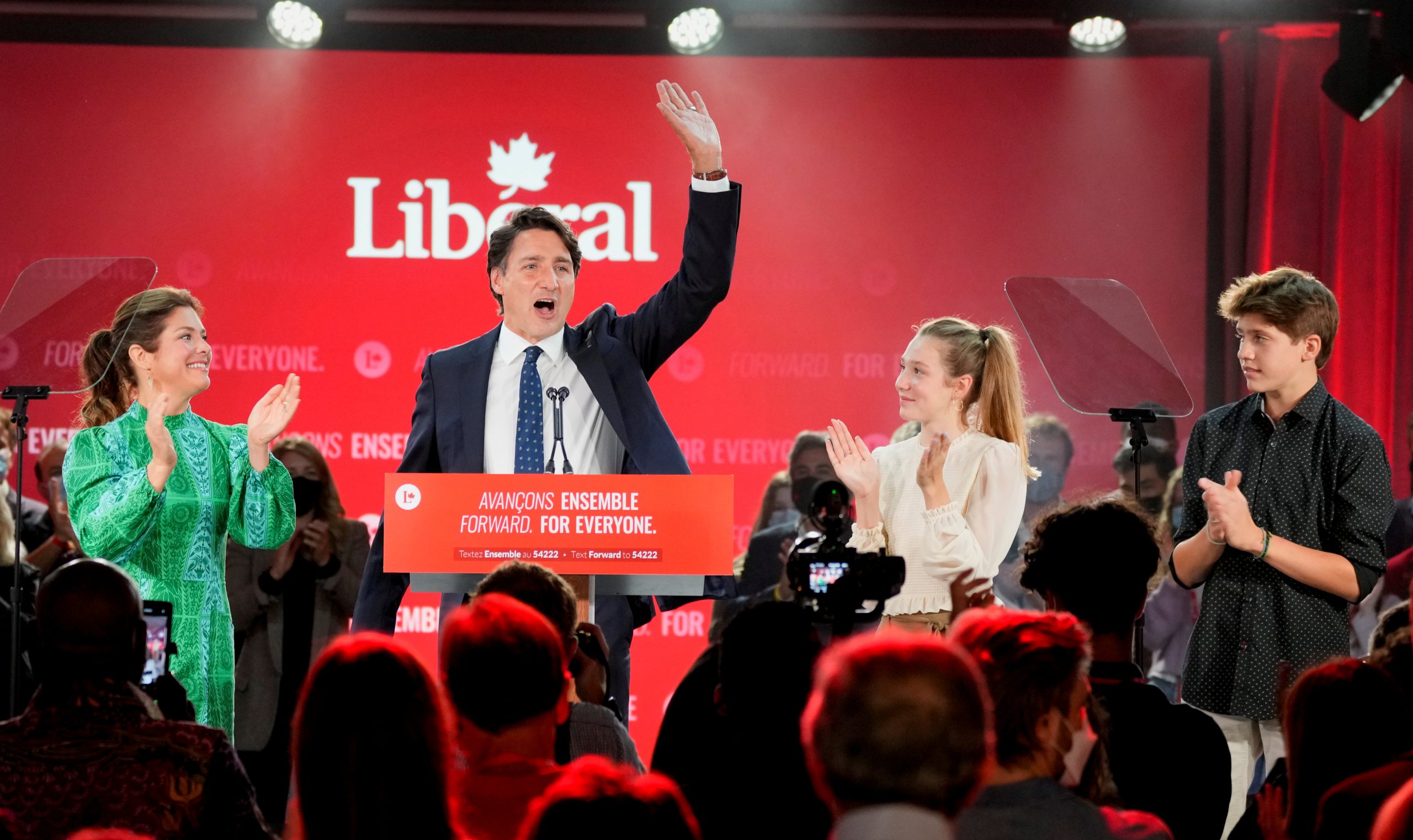
Michael Cardinal, FISM News
[elfsight_social_share_buttons id=”1″]
Justin Trudeau kept his seat as Canadian prime minister in an election that he called two years earlier than scheduled, beating Conservative party candidate Erin O’Toole.
Trudeau had called the early election in an attempt to gain more seats in parliament for his Liberal party, but the gamble failed as his allies only gained one seat on Monday. Trudeau had hoped to form a majority government which would allow him to more easily push through his progressive agenda items, but fell far short of his goal and is left with a minority government once again.
The Liberal party is projected to hold 156 seats in the new government, far below the 170 seats Trudeau would have needed.
Trudeau had campaigned on a promise of agenda items that he will now have a hard time coming through on, including governmental vaccine passport funding, government subsidized child care, and funneling $2 billion towards climate change initiatives.
Trudeau miscalculated the pulse of the country, thinking he could ride a wave of good will from how he had handled the pandemic towards victory but instead cost the government millions of dollars for things to remain status quo. Many Canadians, even within the Liberal party, saw the election as an unnecessary power grab.
O’Toole pointed this out when he gave his concession speech early Tuesday morning:
Five weeks ago Mr. Trudeau asked for a majority, he said the minority parliament was ‘unworkable.’ But tonight Canadians did not give Mr. Trudeau the majority mandate he wanted. In fact Canadians sent him back with another minority at the cost of $600 million Canadian dollars and deeper divisions in our great country.
O’Toole and Trudeau had traded personal jabs while on the campaign trail, highlighting the growing Canadian cultural divide, which seemingly parallels the one seen in America.
Those in the Conservative party view Trudeau’s handling of the pandemic as overly authoritarian while the Liberal party is pushing for further government regulation on the matter. There is also a polarization between the two factions on hot-button topics such as abortion, gun rights, and indigenous reconciliation policies.
Trudeau tried to change the narrative in his victory speech on Tuesday, saying :
What we’ve seen tonight is that millions of Canadians have chosen a progressive plan, and some have talked about the division, but that’s not what I see. I see Canadians standing together.
